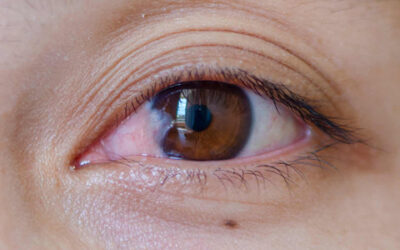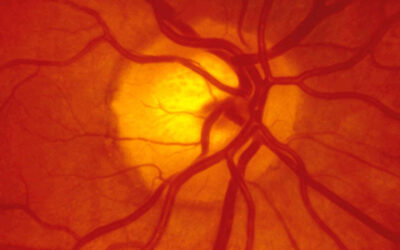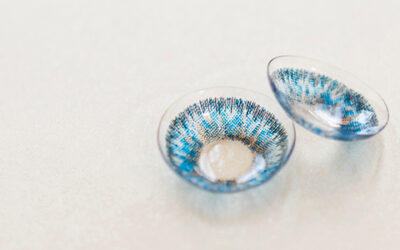Amblyopia: Lazy Eye Symptoms and Treatment
Amblyopia is a condition when one eye is unable to see as well as the other eye, even with glasses correction. This is also loosely called ‘lazy eye’.
Amblyopia occurs when the brain is unable to process what one eye sees as well as the other. This can be the result of an eye turn, a large difference in focusing of the eyes, structural or neurological damage to one eye.
Amblyopia usually presents at birth or a young age, and if undetected can cause a permanent reduction in vision in the affected eye. Early detection and treatment with spectacles and/ or patching can optimize the vision of the deficient eye.
Different types and causes of Amblyopia
There are three main types of amblyopia.

1. Strabismic amblyopia
This is when one eye is unable to see as well as the other, due to an eye turn inwards or outwards.
As one eye turns away, the brain favours the eye that is fixated correctly and only processes and receives input from this eye.
2. Refractive amblyopia
This is when one eye is unable to see as clearly, due to a large difference in refractive error.
Refractive error refers to an amount of myopia (short-sightedness), hyperopia (long-sightedness), or astigmatism, which causes the vision to be blurry.
A significantly larger amount of refractive error in one eye, causes an imbalance and hence, the brain favours the eye that can see more clearly.
3. Visual depravation amblyopia
This is when amblyopia occurs due to vision being obstructed due to a cataract or other impeding condition. Cataracts are when the naturally clear lens inside the eye appears cloudy or hazy.
This obstructs vision and causes the eye to be unable to see clearly or receive proper visual input.
Amblyopia Symptoms
Amblyopia can be easily missed in a lot of cases, as the good eye compensates for the decreased in vision in the amblyopic eye.
Therefore, with two eyes open it will be difficult to detect that one eye is not seeing clearly. Some symptoms of amblyopia include an eye turn or drifting of one eye, lack of 3D vision or depth perception, hazy or blurry vision in one eye when covering the other eye.
How to Diagnose Amblyopia
The diagnosis of amblyopia can be determined by an eye care professional.
A thorough exam including binocular eye coordination, prescription, and eye health checks, will determine what type of amblyopia is present.
This will then determine the type of treatment required.

Treatments for Amblyopia
The following are some of the most common ways to treat amblyopia:
Spectacles to correct any vision blur
Periodical patching of the good eye throughout the day, to stimulate the eye and brain connections for the amblyopic eye.
Treatment for amblyopia is generally successful if started early and followed properly. Amblyopia can be a treatable condition, the earlier it is detected, the better the visual outcome. Therefore, it is important to have babies’ and children’s eyes tested to screen for amblyopia.




